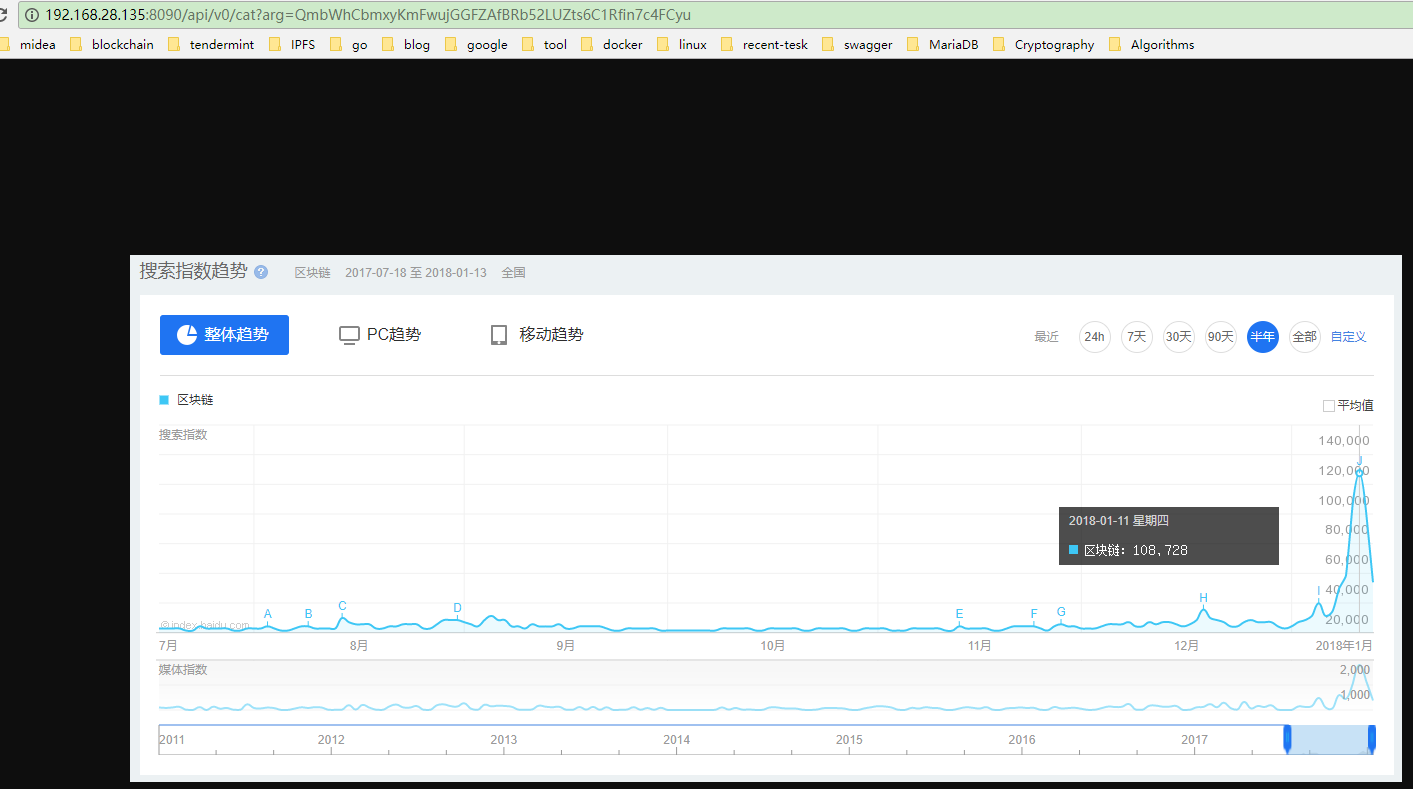基本命令
$ ipfs init
$ ipfs daemon
$ ipfs cat ahash
$ ipfs ls ahash
$ ipfs id
$ echo "This is some data" | ipfsblock put
$ ipfs swarm peers
$ ipfs swarm connect
/ip4/98.207.107.204/tcp/4001/ipfs/QmVenSWgxVW4NVLCwBHTxXxuzNLaXTDoxUTqVxeaJM5avt
$ echo "ipfs rocks" > foo
$ ipfs add foo
$ ipfs pin ls --type=all
$ ipfs pin rm <foo hash>
$ ipfs pin rm -r <foo hash> //宣布为垃圾,还可以读取该文件
$ ipfs repo gc //垃圾回收,回收完再也看不到该文件了
$ ipfs pin ls --type=all
$ ipfs name publish <that hash> //制作ipns
Published to<your peer ID>: <that hash> // /ipns/peerId会指向/ipfs/thathash
$ ipfs name resolve <your peer ID>
$ ipfs cat <your peer ID>
$ ipfs bootstrap list
$ ipfs bootstrap add
$ ipfs bootstrap rm
建立私有的IPFS网络
$ ipfs boostrap rm --all
$ ipfs bootstrap add <your peerID>
$ ipfs daemon
注意所有的peer节点重新设定peer之后还要重新启动ipfs 。
API演示
先用nginx做个代理转发
增加一个文件 /api/v0/add?arg=file
根据返回的哈希值查询该文件 /api/v0/cat?arg=<filehash>
其他API演示
/api/v0/swarm/peers
/api/v0/id




